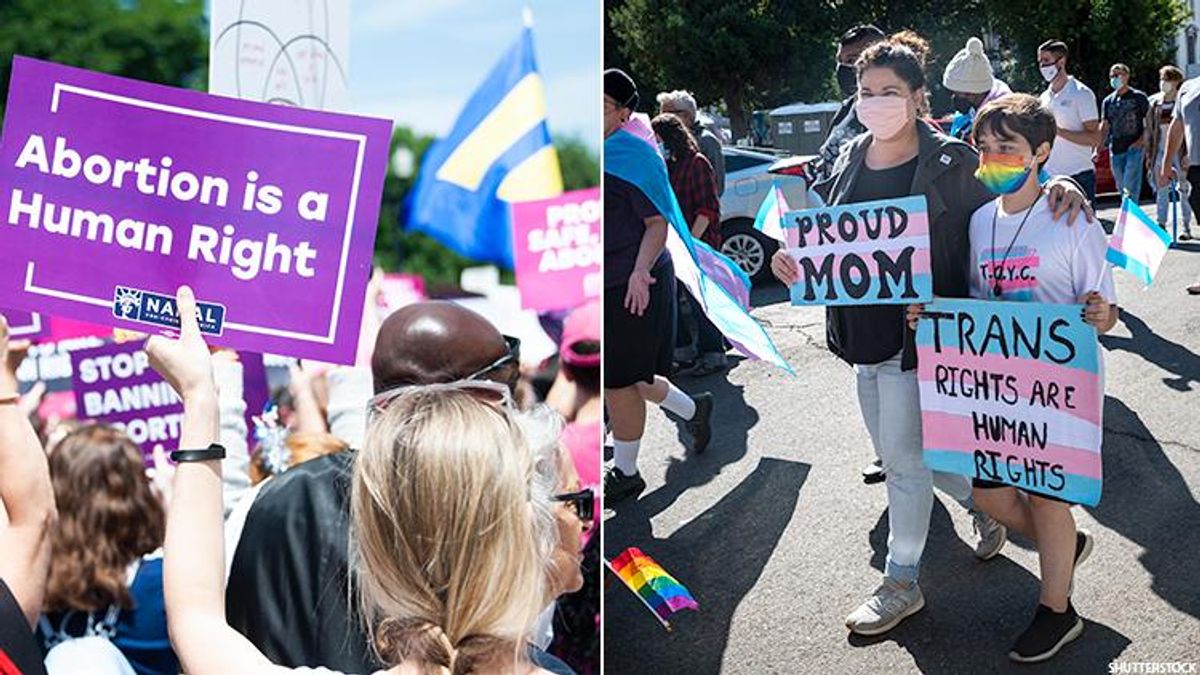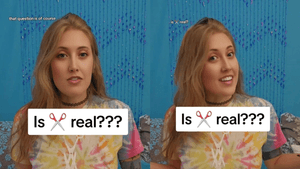Views expressed in The Advocate's opinion articles are those of the writers and do not necessarily represent the views of The Advocate or our parent company, Equal Pride.
When the Supreme Court ruling on Roe V. Wade came down last Friday, I was gathered with other LGBTQ+ community members just outside of the Stonewall Inn to commemorate the groundbreaking for the Stonewall National Monument's visitor center. What was sure to be a powerful event honoring the expansion of our community's greatest historic locations was undercut by the devastating news. As I read that six of the justices had delivered on a white supremacist patriarchal Christo-fascist goal of controlling the bodies and destinies of birthing people, I felt gutted. Just as those fierce queer, trans, and gender-nonconforming folks stood up against the New York Police Department back in June 1969, so too would communities on the margins have to defend ourselves against SCOTUS.
Though I am a woman who will never experience the threat of forced birth, I do know what it's like to feel like you aren't in control of your body. I have known what it's like to be defined by my genitalia, to lack access to medically necessary transition-related care, and to interact with a health care system with archaic and restrictive standards about my medical decisions. I don't have to be a birthing person to know that this was a cisheteropatriarchal attack on bodily autonomy. And this wasn't the first time our institutions failed us on this front this year.
In early June, Florida Gov. Ron DeSantis continued his assault on the rights of trans youth and their parents and caretakers in accessing gender-affirming health care, care that's supported by every major medical association as safe, effective, and lifesaving. His administration requested the state's board regulating doctors to ban access for young trans people hours after the state's Health Department released a report calling for a ban on Medicaid coverage for affirming care for trans people of all ages. These actions fly in the face of research and widely held consensus in both the medical and scientific communities about the safety and necessity of gender-affirming care.
On the athletic front, FINA, the body that regulates international swimming competitions, moved to restrict trans women from competing in events corresponding with our gender. This body has called for the prohibition of trans women competitors who have experienced and/or didn't begin their medical transition by the age of 12 or the onset of initial puberty. With the ongoing fights against trans youth to even access gender-affirming care, this standard dwindles the chances for any trans athlete to participate, ever. It also conflicts with guidance issued last fall by the International Olympic Committee, which clearly states no athlete should be excluded based on unverified advantage, and there should be no presumed advantage for any athlete based on gender identity, sex variations, or appearance.
These are just the legislative and judicial attacks that most clearly chip away at our rights, but the aperture must be wider to see the full picture. From the devastating shooting attack on children in Uvalde, Texas, to the death of at least 50 migrants in a tractor-trailer in San Antonio, all around us our institutions and governmental policies are jeopardizing our lives or outright killing us.
A large part of what makes our progressive march toward liberation difficult is that we continuously buy into these ideas of scarcity that are fed to us by the media and the powers that be. There's this idea that only one issue, the revocation of only one set of rights, can be the priority at a time. This leaves us fighting over scraps and morsels of visibility and relevance, which is unproductive for all of us.
With Pride Month coming to an end, I'm continuously inspired by the action that occurred at the Stonewall riots. On those nights, more than 50 years ago, an unlikely collective formed of butch lesbians, drag queens, trans and gender-nonconforming people, gay men, and people of various racial, ethnic, and class backgrounds. That's what will be required for us to survive in this current climate where marginalized groups are facing threats on all fronts. And we'll also have to contend that none of our institutions are inherently benevolent and that we can't just sit back and trust that they'll save us.
There are no easy answers going forward as we move through our anger, grief, and fear. But one thing remains true, we have the power to support existing community efforts that are rooted in our values and to build new ones. If our educational system won't support and teach queer and trans youth, we have to build our own curricula and spaces in which they will be fortified. If we can't rely on our government to protect our reproductive rights, we must support funds that will defy those restrictions and take care of all birthing people. If we can't rely on corporations to prioritize their workers' equity and safety, we must support unionizing and strike efforts. If SCOTUS and lethargic politicians are against us, then we must be for us.
Raquel Willis is a Black transgender activist, writer, and GLAAD consultant, dedicated to elevating the dignity of marginalized people, particularly Black transgender people.


















































































